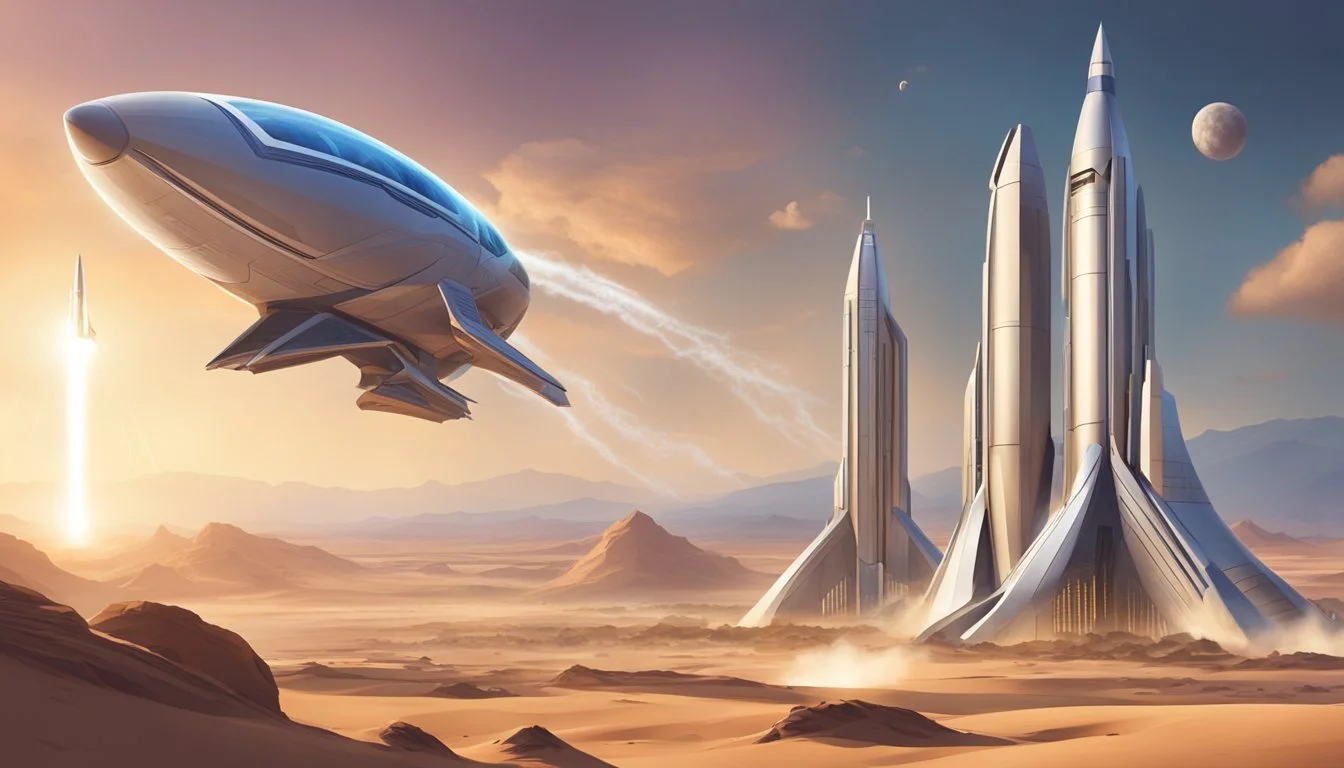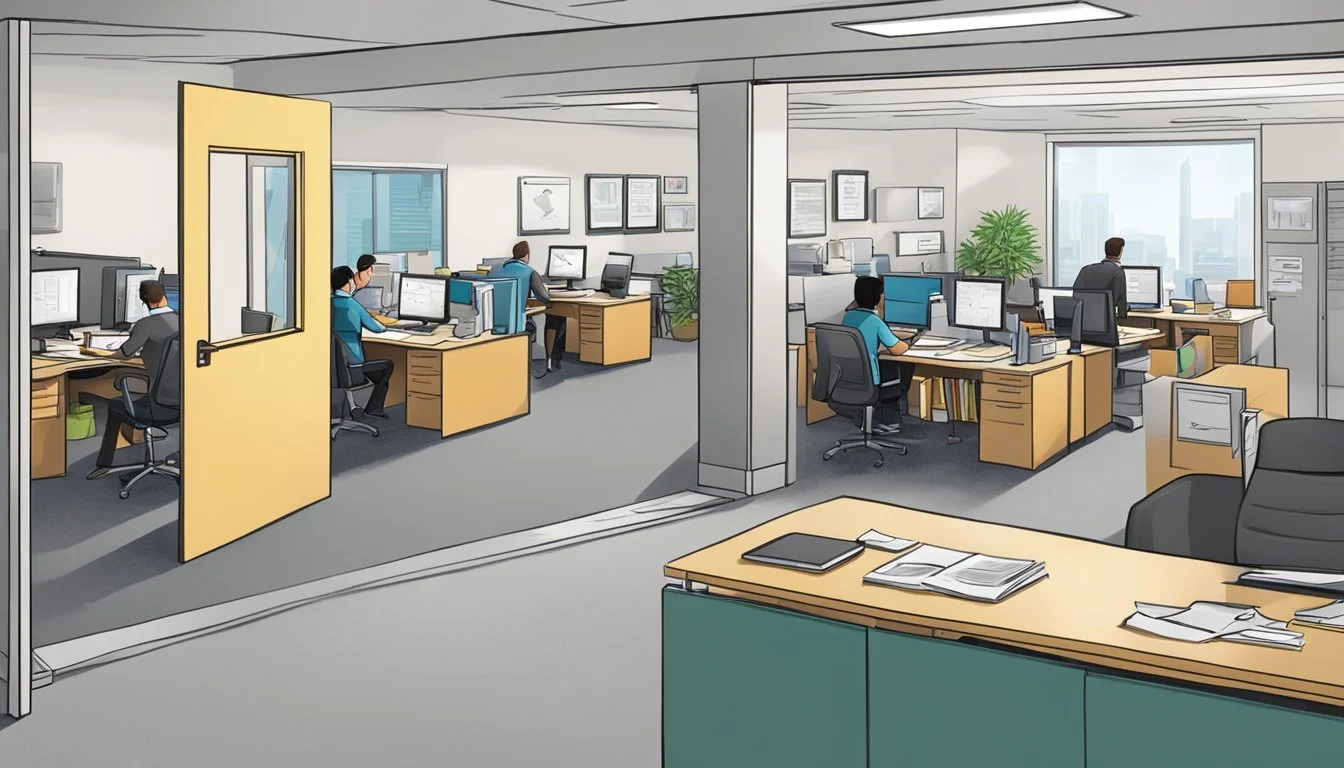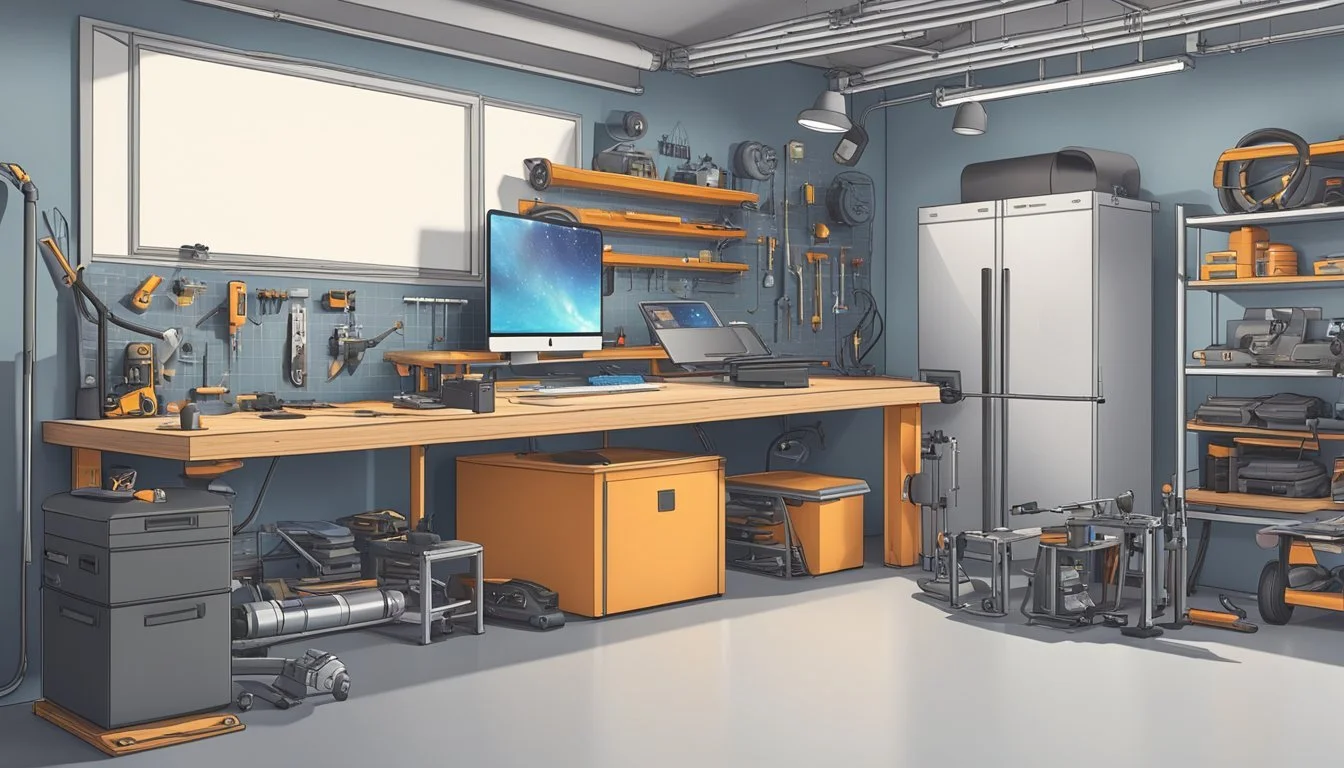The Entrepreneurial Origins of Tech Titan Elon Musk
Zip2's Role in His Entrepreneurial Journey
Elon Musk's entrepreneurial journey began in 1995 with the founding of Zip2, a company that provided online city guides and maps for newspapers. Zip2 was Musk's first venture and laid the foundation for his future success in the tech industry.
The company developed a searchable business directory, essentially creating an Internet version of the yellow pages with integrated maps. This innovative approach to digital information caught the attention of major newspapers, who partnered with Zip2 to offer online directories to their readers.
In 1999, Compaq Computer Corporation acquired Zip2 for $307 million. Musk, who owned 7% of the company, received $22 million from the sale at just 27 years old. This early success provided Musk with the capital and experience to pursue his next ventures, including X.com, which later became part of PayPal.
Early Life and Education
Elon Musk's formative years were shaped by his upbringing in South Africa and his educational experiences in North America. These early influences laid the foundation for his future entrepreneurial endeavors.
Birthplace and Upbringing in South Africa
Elon Musk was born on June 28, 1971, in Pretoria, South Africa. He grew up in a country marked by apartheid, which likely influenced his worldview. Musk's parents, Maye and Errol Musk, played significant roles in his early life.
His mother worked as a model and dietitian, while his father was an electromechanical engineer. Musk showed an early aptitude for technology and entrepreneurship, selling his first computer program at age 12.
Education at Pretoria and University of Pennsylvania
Musk attended Waterkloof House Preparatory School and Bryanston High School before graduating from Pretoria Boys High School. In 1989, he moved to Canada to avoid mandatory military service in South Africa.
He studied at Queen's University in Ontario for two years before transferring to the University of Pennsylvania in 1992. At Penn, Musk pursued a dual bachelor's degree in economics and physics, demonstrating his diverse intellectual interests.
Transfer to Stanford University
After completing his undergraduate studies in 1995, Musk was accepted into a Ph.D. program in energy physics at Stanford University. However, his academic journey took an unexpected turn.
Musk deferred his admission after just two days, deciding instead to pursue entrepreneurial opportunities in the emerging internet boom. This decision marked the beginning of his business career and set him on the path to founding his first company, Zip2.
The Launch of Zip2 Corporation
Zip2 Corporation emerged as Elon Musk's first venture into the tech industry, combining digital mapping with business directories. The company's innovative approach and strategic partnerships propelled it to success in the late 1990s.
Formation and Business Model
Elon Musk, along with his brother Kimbal and Greg Kouri, founded Zip2 in Palo Alto, California in 1995. Initially named Global Link Information Network, the company aimed to provide local businesses with an online presence. Zip2's core product evolved into an Internet-based city guide, offering users a searchable business directory integrated with maps.
The company's business model focused on licensing its software to newspapers, enabling them to offer online city guides to their readers. This approach allowed Zip2 to tap into the established customer base of traditional media outlets while providing value-added services.
Strategic Partnership with Compaq
In 1996, Zip2 secured a crucial partnership with Compaq Computer Corp. This collaboration involved integrating Zip2's city guide technology with Compaq's AltaVista search engine. The partnership significantly expanded Zip2's reach and credibility in the rapidly growing Internet market.
The alliance with Compaq provided Zip2 with access to advanced technology and resources, enhancing its mapping software capabilities. This strategic move positioned Zip2 as a formidable competitor to other emerging online directory services like Citysearch.
Acquisition and Musk's Departure
Zip2's success attracted significant investor interest. In 1998, the company received $50 million in funding from a group led by Mohr Davidow Ventures. This investment fueled Zip2's growth and expansion into new markets.
In February 1999, Compaq Computer Corp acquired Zip2 for $307 million. The acquisition marked a substantial exit for the young company and its founders. Elon Musk, as the largest shareholder, received $22 million from the sale.
Following the acquisition, Musk departed from Zip2 to pursue new ventures. The sale of Zip2 provided him with the capital and experience to launch his next projects, including X.com, which later became PayPal.
The Creation of X.com and PayPal
Elon Musk's first major venture into online financial services began with X.com in 1999. This innovative online bank quickly evolved through a merger and acquisition, becoming the widely-used payment platform PayPal.
Founding of Online Bank X.com
Elon Musk co-founded X.com in 1999 with Ed Ho, Harris Fricker, and Christopher Payne. The company launched as an online bank based in Palo Alto, California. Musk invested $12 million of his own money into X.com, making him the largest shareholder.
X.com aimed to revolutionize banking by offering a full range of financial services online. The company provided checking accounts, savings accounts, and mutual funds to customers entirely through the internet.
Merger and Evolution into PayPal
In March 2000, X.com merged with Confinity, a company founded by Max Levchin and Peter Thiel. Confinity had developed a money transfer service called PayPal.
Initially, Musk served as CEO of the combined company. However, disagreements over the company's direction led to Musk's ouster in October 2000.
The merged entity adopted the name PayPal in 2001. PayPal focused on becoming the preferred online payment method for e-commerce transactions.
Ebay's Acquisition of PayPal
PayPal's rapid growth attracted the attention of online auction giant eBay. In July 2002, eBay acquired PayPal for $1.5 billion in stock.
The acquisition proved mutually beneficial. PayPal became eBay's default payment method, fueling its expansion. eBay users embraced PayPal for its ease of use and security features.
Under eBay's ownership, PayPal continued to grow and innovate. It expanded its services beyond eBay, becoming a widely-used payment platform across the internet.
Subsequent Endeavors
After Zip2, Elon Musk embarked on a series of ambitious ventures that revolutionized multiple industries. His projects spanned space exploration, electric vehicles, renewable energy, infrastructure, and neurotechnology.
Launch of Space Exploration Technologies
In 2002, Musk founded SpaceX with the goal of reducing space transportation costs and enabling the colonization of Mars. The company developed the Falcon 1, Falcon 9, and Falcon Heavy rockets, as well as the Dragon spacecraft.
SpaceX achieved several historic milestones:
First privately-funded liquid-fueled rocket to reach orbit (Falcon 1, 2008)
First private company to send a spacecraft to the International Space Station (Dragon, 2012)
First successful vertical landing of an orbital rocket booster (Falcon 9, 2015)
The company's reusable rocket technology significantly lowered launch costs. SpaceX also launched Starlink, a satellite internet constellation aiming to provide global broadband coverage.
Development of Tesla Motors
Musk joined Tesla Motors in 2004, investing heavily and becoming chairman of the board. He later became CEO and product architect, driving the company's mission to accelerate sustainable transport.
Tesla's key achievements include:
Launch of the Roadster (2008), the first highway-legal serial production all-electric car to use lithium-ion battery cells
Introduction of Model S (2012), Model X (2015), and Model 3 (2017)
Development of advanced battery technology and autonomous driving features
The company expanded into energy storage and solar panel manufacturing with Tesla Energy. Musk's leadership transformed Tesla into the world's most valuable automaker by market capitalization.
Contributions to SolarCity and Renewable Energy
Musk helped conceive SolarCity, founded by his cousins in 2006. He served as chairman and largest shareholder. The company became the leading provider of residential solar systems in the United States.
Key developments:
Introduced solar lease and power purchase agreement models
Developed solar roof tiles integrating photovoltaic cells into roofing materials
Merged with Tesla in 2016 to create a vertically integrated sustainable energy company
This merger allowed Tesla to offer integrated solar and energy storage solutions, furthering Musk's vision of a sustainable energy ecosystem.
Initiation of The Boring Company
Musk founded The Boring Company in 2016 to build underground transportation networks. The company aims to reduce traffic congestion and enable high-speed travel through tunnels.
Notable projects include:
Las Vegas Convention Center Loop (completed 2021)
Proposed tunnels for Chicago and Los Angeles
Development of the "Loop" and "Hyperloop" transportation concepts
The company also gained attention for unconventional promotional products like flamethrowers and branded hats.
Founding of Neuralink
In 2016, Musk co-founded Neuralink, a neurotechnology company developing brain-computer interfaces. The company's goals include treating neurological conditions and eventually enabling human-AI symbiosis.
Key aspects of Neuralink's work:
Development of high-bandwidth brain-machine interfaces
Creation of a sewing machine-like robot for precision electrode implantation
Demonstrations of neural recording in pigs and monkeys
While still in early stages, Neuralink's technology has potential applications in treating paralysis, blindness, and other neurological disorders.
Advancements in Technology and Society
Elon Musk's ventures have driven significant progress across multiple industries. His companies have pioneered innovations in sustainable transportation, renewable energy, artificial intelligence, and space exploration.
Promotion of Sustainable Transportation
Tesla, led by Musk, has revolutionized the automotive industry with its electric vehicles. The company's Models S, 3, X, and Y have popularized EVs and spurred other manufacturers to develop their own electric cars.
Tesla's Autopilot system has advanced self-driving technology, aiming to reduce accidents and improve road safety. The company has also developed electric semi-trucks to decarbonize long-haul transport.
Musk's Boring Company is working on high-speed underground transportation systems to alleviate traffic congestion in urban areas.
Advocacy for Renewable Resources
SolarCity, now part of Tesla, has made solar power more accessible to homeowners through innovative financing options and efficient solar panels. The company's Solar Roof integrates photovoltaic cells directly into roofing tiles.
Tesla's Powerwall and Powerpack battery systems enable homes and businesses to store solar energy, promoting energy independence and grid stability.
Musk has been a vocal advocate for carbon taxes and other policies to accelerate the transition to renewable energy sources.
Exploration of Artificial Intelligence
OpenAI, co-founded by Musk, conducts research to ensure artificial intelligence benefits humanity. The organization has made significant strides in machine learning and natural language processing.
Neuralink, another Musk venture, is developing brain-computer interfaces to enhance human cognitive abilities and treat neurological conditions.
Tesla's work on autonomous driving relies heavily on AI, pushing the boundaries of computer vision and decision-making algorithms.
Future of Space Colonization
SpaceX, Musk's aerospace company, has dramatically reduced the cost of space launches through reusable rocket technology. The Falcon 9 and Falcon Heavy rockets have set new standards for efficiency and reliability.
The company's Starship project aims to enable human colonization of Mars. SpaceX is developing life support systems, habitation modules, and in-situ resource utilization technologies for long-term planetary settlement.
SpaceX's Starlink satellite constellation is bringing high-speed internet to remote areas, potentially transforming global connectivity.
Personal Life and Public Persona
Elon Musk's personal life and public image are intertwined with his business endeavors. His family background, relationships, social media presence, and philanthropic efforts have all shaped his public persona.
Family Background and Relationships
Elon Musk was born in Pretoria, South Africa, to Errol Musk, an engineer, and Maye Musk, a model and dietitian. He has two siblings: brother Kimbal and sister Tosca. Musk's parents divorced when he was young, and he lived primarily with his father.
Musk has been married three times and has fathered ten children. His first marriage to Justine Wilson resulted in six children, including twins and triplets. He later married and divorced actress Talulah Riley twice.
In 2018, Musk began dating musician Grimes. They have two children together but are no longer a couple. He also had twins with Shivon Zilis, an executive at Neuralink, one of his companies.
Social Media Presence and Influence
Elon Musk is known for his active and often controversial presence on social media platforms, particularly Twitter. He has amassed a massive following, with over 100 million followers as of 2023.
Musk's tweets have influenced stock prices, cryptocurrency markets, and public discourse on various topics. His Twitter activity has also landed him in legal trouble, most notably with the SEC over tweets about taking Tesla private.
In 2022, Musk acquired Twitter for $44 billion, citing free speech concerns and a desire to improve the platform. This move further solidified his influence in the social media landscape.
Philanthropy and the Musk Foundation
Elon Musk established the Musk Foundation in 2002. The foundation focuses on renewable energy research, human space exploration, pediatric research, science and engineering education, and development of safe artificial intelligence.
The foundation has made significant donations to various causes, including $10 million to the Future of Life Institute for AI research and $15 million to XPRIZE for Global Learning.
Musk has signed the Giving Pledge, committing to donate the majority of his wealth to charitable causes during his lifetime or in his will. Despite this, his philanthropic efforts have been criticized for lacking transparency and scale relative to his wealth.
Controversies and Public Scrutiny
Elon Musk's business ventures have attracted significant attention and sparked numerous controversies. His actions and statements have led to clashes with regulators, employees, and the public.
Dealings with Various Governments
Musk has had a complex relationship with government entities. In 2018, he faced scrutiny from the U.S. Securities and Exchange Commission (SEC) over tweets about taking Tesla private. This resulted in a $20 million fine and his temporary removal as Tesla's chairman.
His interactions with foreign governments have also raised eyebrows. Musk's dealings with China, where Tesla has a major manufacturing presence, have been criticized due to concerns about technology transfer and human rights issues.
In 2022, Musk offered to activate Starlink satellite internet in Iran during protests, prompting questions about private companies influencing geopolitics.
Management Style and Company Layoffs
Musk's management approach has been described as demanding and unpredictable. He is known for setting ambitious goals and pushing employees to meet tight deadlines.
At Twitter (now X), Musk implemented significant layoffs shortly after his $44 billion acquisition. He reduced the workforce by approximately 50% within days of taking control.
Similar workforce reductions occurred at Tesla and SpaceX during various periods. These actions have led to criticism of his leadership style and concerns about employee well-being.
Musk has defended his approach, arguing that tough decisions are necessary for company survival and innovation.
Involvement in Free Speech and Misinformation Debates
Musk's acquisition of Twitter thrust him into the center of debates about free speech and misinformation online. He positioned himself as a "free speech absolutist" and made changes to the platform's content moderation policies.
These changes included reinstating some previously banned accounts, including that of former U.S. President Donald Trump. Critics argued this could lead to increased spread of misinformation.
Musk also faced backlash for sharing an unfounded conspiracy theory about the attack on Nancy Pelosi's husband, highlighting concerns about his personal use of the platform.
Financial Maneuvers and Acquisitions
Musk's financial decisions have drawn scrutiny from investors and regulators. His tweet about having "funding secured" to take Tesla private in 2018 led to legal action from the SEC.
The $44 billion Twitter acquisition was marked by attempts to back out of the deal, resulting in a legal battle. Musk eventually completed the purchase but faced criticism for the high price and subsequent cost-cutting measures.
In 2022, a Tesla shareholder sued Musk, alleging he had inside information about production challenges when he sold $7.5 billion in Tesla stock. This raised questions about the timing and ethics of his stock transactions.
Impact and Legacy
Zip2, Elon Musk's first company, laid the foundation for his future endeavors and left a lasting mark on the tech industry. Its influence extended beyond its initial scope, shaping Musk's entrepreneurial journey and the broader landscape of digital innovation.
Influence on 21st Century Innovation
Zip2's digital city guide concept paved the way for location-based services we now take for granted. It demonstrated the potential of combining mapping technology with local business information, a precursor to modern navigation apps and online directories.
Musk's early success with Zip2 inspired a generation of tech entrepreneurs. It showed how a small team with limited resources could create valuable digital solutions, spurring innovation in Silicon Valley and beyond.
Contributions to the Economy and Employment
Zip2's sale to Compaq for $307 million in 1999 injected significant capital into the tech ecosystem. This transaction created wealth for early employees and investors, fueling further investments in startups.
The company's growth led to job creation in the tech sector. It provided employment opportunities for software developers, sales professionals, and other roles in the emerging digital economy.
Standing as a Leading Figure in Technology
Zip2's success established Elon Musk as a rising star in Silicon Valley. It gave him the credibility and capital to pursue more ambitious projects like PayPal and later SpaceX and Tesla.
Musk's role as CTO at Zip2 honed his technical and leadership skills. This experience proved invaluable in his future roles as CEO and Chief Engineer at multiple companies.
The company's exit strategy became a model for tech startups. It demonstrated how creating innovative solutions could lead to lucrative acquisitions by larger corporations.







